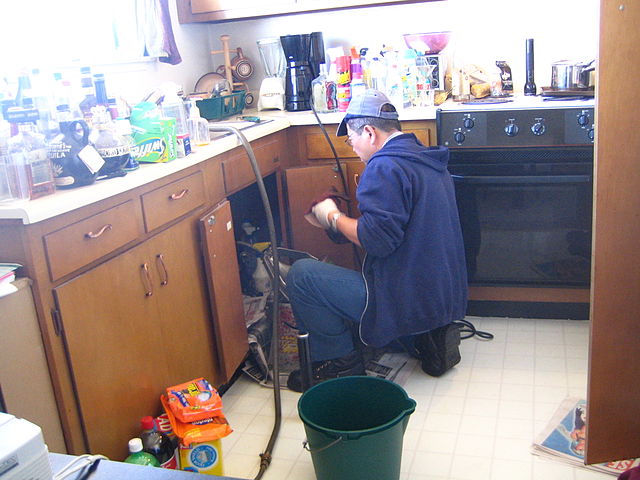Brown Friday

The day after Thanksgiving has a special moniker in the United States: Black Friday, which is now commonly a reference to the accounting gains made by retailers during the Christmas shopping period which informally begins on that day. But Black Friday is a boon for another business as well: the emergency plumbing trade.
As reported by the Holland (Michigan) Sentinel, according to nationwide plumbing service Roto-Rooter, emergency housecalls on that day are the highest of any day of the year, and 50% higher than any other Friday. But don’t get grossed out thinking about millions of Americans overeating and then, collectively, clogging hundreds of thousands of toilets — that’s not the cause. The uptick in house calls comes from two factors, neither of which involve a visit to the porcelain throne.
First, the huge amount of food leads to a bunch of waste — grease and bones and a bunch of other stuff which washes off dishes into the sink. And all this stuff collects in the basin, with the notably dense grease causing a particular problem. The grease and other waste gets caught in the kitchen sink pipes, causing a nice clog, and, of course, preventing any further clean up until it’s fixed. So the plumber gets called.
This leads to the second problem. Like most Americans, plumbers celebrate Thanksgiving, and would rather not work on that day. So they typically charge a lot extra to leave their Thanksgiving meal to come out to your house and unclog your drain. Many families therefore wait — if they can — until the next day. As a result, the plumbers get two days’ worth of holiday calls in the same day, and, as Thanksgiving is a secular holiday, there are a lot of people celebrating it.
So what should you do with your grease? The New York City Department of Environmental Protection suggests taking all the liquefied fat, oil, and grease and putting it into a container — and then throwing out the whole thing. And as the city points out, putting that stuff down your drain can not only require a visit from the plumber — it also gunks up the municipal sewage system.
Bonus fact: The final episode of M*A*S*H aired on February 28, 1983, and was watched by 125 million viewers. The impact of the show was so dramatic that, according to the book “The Last Days of MASH,” New York City’s sanitation department saw a significant spike in water usage after it ended, as many New Yorkers waited until after the show to go and use the toilet.
From the Archives: How Turkey Got Its Name: The bird, not the country.
Related: “The Last Days of MASH” by Alan and Arlene Alda. Five stars on eight reviews.

Leave a comment